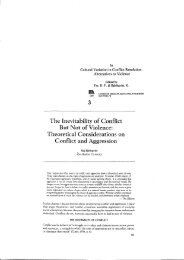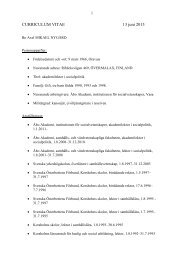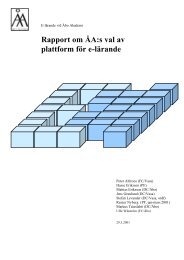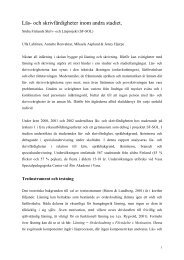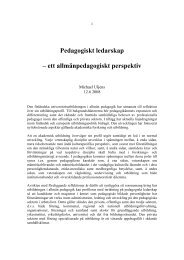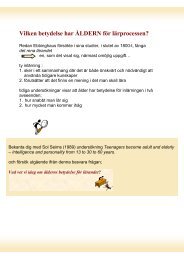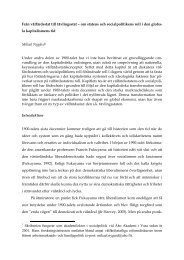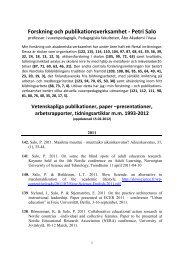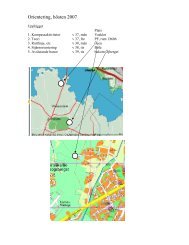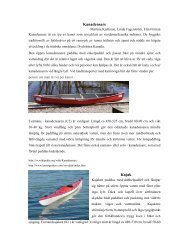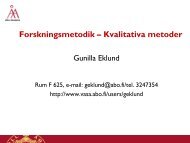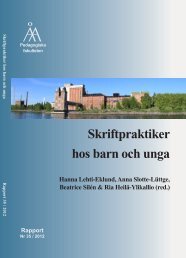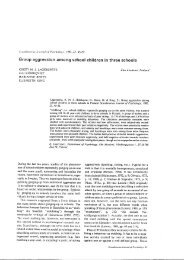Parties, Candidates and Citizens On-Line - Åbo Akademi
Parties, Candidates and Citizens On-Line - Åbo Akademi
Parties, Candidates and Citizens On-Line - Åbo Akademi
Create successful ePaper yourself
Turn your PDF publications into a flip-book with our unique Google optimized e-Paper software.
C. Summary <strong>and</strong> conclusions<br />
A discussion concerning on-line political activity by political actors <strong>and</strong> citizens was<br />
carried out in the introduction to this thesis. Drawing on that discussion, a theoretical<br />
framework containing a typology of four on-line political environments in which these<br />
two dimensions were considered in conjunction was also constructed. Building on this<br />
framework, a purpose <strong>and</strong> five empirical research questions were constructed for the<br />
thesis. The thesis’ construction consisting of five articles was perceived as having two<br />
advantages: it ought to provide a “broad experience” of the phenomenon of interest, <strong>and</strong><br />
the findings of the individual parts should shed light on each other when analyzed as parts<br />
of a common context (Moring 1989, 31-32). With these potential advantages in mind, the<br />
findings of the individual studies will now be summarized <strong>and</strong> discussed in relation to the<br />
empirical research questions, the theoretical framework <strong>and</strong> the typology of four on-line<br />
political environments presented in the introduction. The Finnish case will first be<br />
revisited in light of certain circumstances brought to attention by the thesis’ articles.<br />
1. The Finnish case revisited<br />
Studies which are mainly concerned with only one country have an apparent problem<br />
according to Peters (1998, 5-6):<br />
“the more an approach takes into account […] one political system […] the<br />
less capable that research strategy will be of producing generalizations […]<br />
The underst<strong>and</strong>ing developed through the extended analysis of the single<br />
case becomes almost intuitive, so that conveying it to others may become<br />
very difficult” (Peters 1998 5-6)<br />
The Finnish case will now be revisited in order to position the thesis within a broader<br />
context, <strong>and</strong> to address the problem of this ‘particularistic pitfall’. The discussion in this<br />
section arguably bears some relevance to the “generalizability” of the thesis.<br />
A meta-analysis of the research field concerning on-line electoral competition was<br />
conducted in the first of the thesis’ articles (Str<strong>and</strong>berg 2006b). Specifically, scholarly<br />
findings of either normalization or equalization were tested for logical dependence on<br />
several contextual <strong>and</strong> one methodological variable. Four contextual variables, i.e. the<br />
election system, the length of the country’s status as a democracy, the country’s human-<br />
<strong>and</strong> technological development <strong>and</strong> the media environment, were considered as being<br />
potentially influential on the findings of either normalization or equalization.<br />
169



